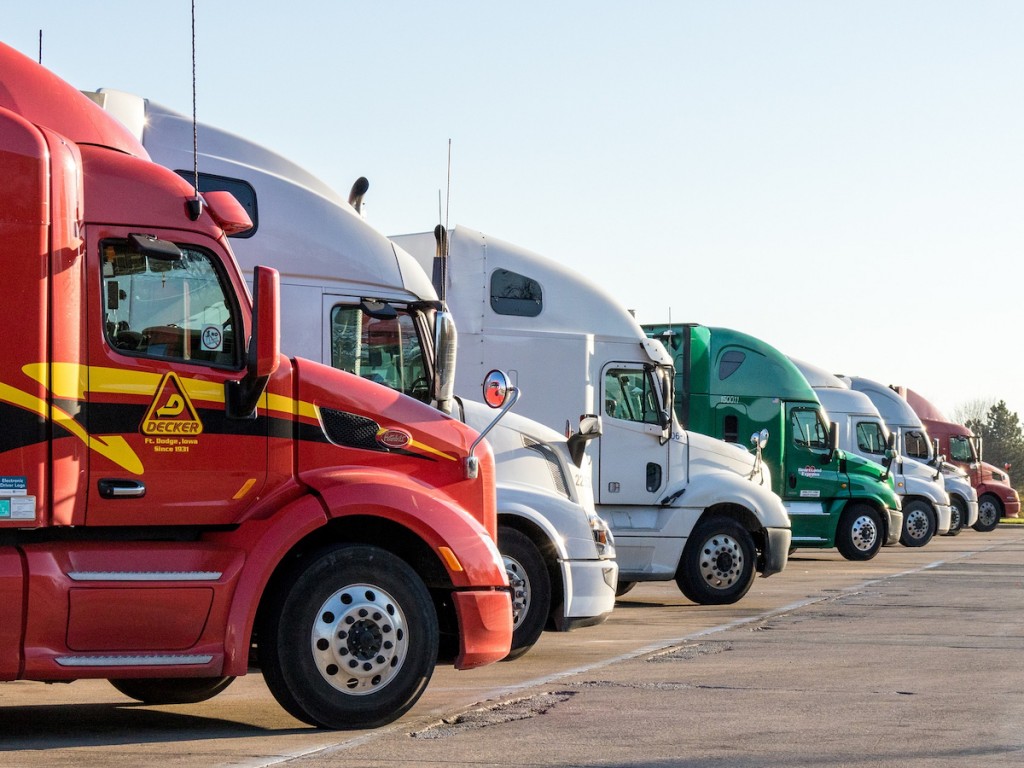Past economic models have no relevance to the current crisis.
The United States is facing an unprecedented demand-side crisis as a result of the Coronavirus shutting down major sectors of the economy crippling prospects for recovery, increasing dislocations for trucking and more downturns at ports, warehouses and distribution centers, according to Jock O’Connell, an economist with the Pacific Merchant Shipping Association (PMSA) and Beacon Economics.
He is so worried about truck drivers getting sick that he warns that National Guard units may be forced to make truck deliveries.

O’Connell gave a gloomy forecast of economic activity for the rest of 2020 although he hopes there will be an uptick in the 3rd Quarter of 2020. Nevertheless, he sees few bright spots for the economy and noted the following areas of concern:
Demand-Side Decline
The dramatic shutdowns of small businesses, restaurants, retailers and manufacturer’s has created a collapse in demand across the United States: “For Americans living pay-check to paycheck this is going to be devastating and a check from the government (from the $2 trillion federal stimulus) is not going to help much.” At the same time, ports, terminals, warehouses, grocery stores and other businesses will suffer growing dislocations as demand remains weak. One short term beneficiary of the situation will be Amazon: “Amazon has deeper pockets than other retailers to ride out the storm, but this could change the longer the downturn continues.”
Growing Trucking Dislocations
“I see the trucking industry becoming increasingly brittle with the prospect of major dislocations as truck drivers become sick. This is especially true for long-haul drivers who are working very hard, under a great deal of stress and thus more vulnerable to getting sick. To make matters worse the shutting down of truck stops and rest areas is forcing drivers to drive longer distances with less rest and not even a place to eat.” The result is that grocery stores, retailers and manufacturers are going to experience increasing delays and disruptions of deliveries until the crisis ends. A further threat is that the reliance on at-home deliveries, which have sustained millions during the stay-at-home orders, will become less frequent, threatening shortages: “So we’re talking about the long-haul truck driver, the drayage driver (drivers at ports) and your UPS and Fed Ex driver… Governors may have to mobilize National Guard units to make deliveries.”
Impact on State and Local Governments
States that have budget surpluses, such as California, are likely to be able to weather the downturn better than states that did not have surpluses for a “rainy day fund. This is a rainy day.” The same will hold true for local governments that have been fiscally disciplined. However, local governments with extensive program obligations will have to institute cutbacks. Nationally, all state and local governments will suffer from declining revenue as a result of declining economic activity: “The city parking garage that generated revenues is not going to be doing that when nobody is going to the stores or going to work at the office. So, if you were relying on revenue from that source or other sources they aren’t going to be there in the near-term.”
Amazon
“Amazon has weathered this crisis as the retailer of last resort. However, as national demand declines, even Amazon sales will go down. Amazon stock may be booming right now but that isn’t going to last forever.” The problem, even for Amazon, will begin when workers get sick, truck deliveries become scattered and when overall demand stays low. Amazon employees at its Whole Foods subsidiary staged a one-day sick-out on March 31st. Nationally, workers are starting to demand better pay and protection against infection while working at stores and making deliveries. One noticeable effect is that next day deliveries from Amazon are becoming less frequent.
The End of the Consumer Economy?
Americans who have been living pay check to pay check are likely to start increasing savings and not spend money on purchases they cannot afford. They will also make less credit card purchases to avoid long-term debts: “When I was growing up, I was always struck by how stingy my parents were. The reason? They had gone through the Depression during the 1930’s when people were destitute. That made people of their generation learn to spend within their means and avoid debt. It was a habit that stayed with them for the rest of their lives. We may be seeing a repeat of that phenomenon.”

